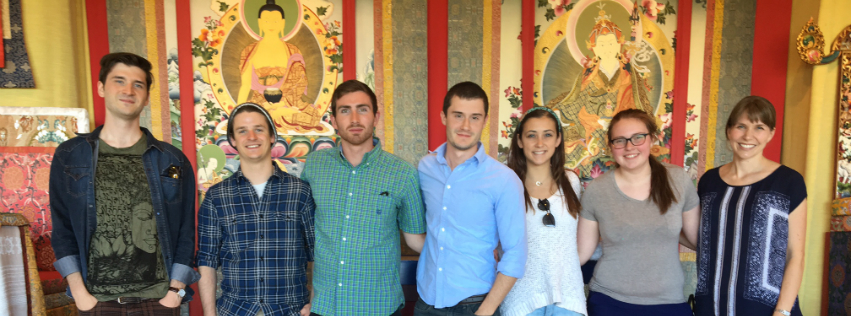
Religion touches many aspects of human life: politics, culture, literature, art, law, economics, sexuality, science, and more. In order to analyze religion's multiple dimensions, the Religion program at JMU introduces students not only to diverse religious traditions, but also to a spectrum of issues, disciplinary approaches, and critical methodologies from across the humanities.
Students studying Global Religions and Cultures at JMU will graduate with the following skills and competencies:
- Demonstrate contextual cultural knowledge and competence by identifying and recalling key concepts of five major global religious traditions (Hinduism, Buddhism, Judaism, Christianity, and Islam).
- Identify and apply theories and/or major approaches drawn from the academic study of religion in creating academic projects of inquiry.
- Demonstrate proficient written communication by making a sustained evidence-based argument about a topic in religious studies.
- Apply critical thinking skills by composing sound arguments and/or by conducting analyses of historical or contemporary challenges facing one or more religious traditions.
- Demonstrate information literacy through vetting and verifying the reliability of sources, detecting biases, making proper attribution and citation of sources, and evaluating sources and/or media coverage for strengths, weaknesses, biases, and accuracy.
- Demonstrate proficient oral communication by presenting research and/or an evidence-based argument.
- Analyze religious texts, practices, people or ideas within their social, political or cultural contexts.
All students who concentrate in religion take a 400-level capstone seminar during their junior or senior year that will provide them extensive opportunity for original research, critical and creative thought, and oral and written expression.
For the Religion program's latest assessment of its progress toward instilling the above skills and competencies, see 2022-2023 APT for the Religion program, Department of Philosophy and Religion. For feedback on the assessment report from the Center for Assessment and Research Studies at JMU, see Assessment Progress Template Feedback 2022-2023.
